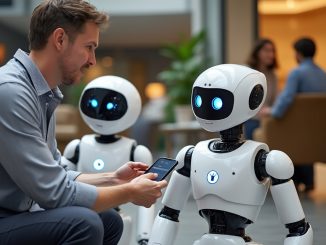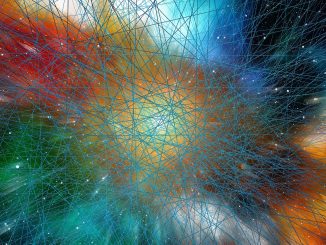The dawn of a new era in artificial intelligence (AI) is upon us, and it promises to reshape the global economy in ways we’ve barely begun to imagine. This was the central message delivered by Emad Mostaque, Founder of Schelling AI, during his compelling address at ‘Token 2049 Singapore‘. Mostaque painted a vivid picture of an impending technological revolution that he dubbed “AI Atlantis” – a new digital continent populated by billions of AI entities capable of performing a vast array of human tasks.
Mostaque’s vision of the future is both exhilarating and unsettling. He describes a world where AI can not only code and create content but will soon possess memory capabilities, elevating them from their current “goldfish” state to more sophisticated entities. This advancement, he argues, will trigger seismic shifts in the global economy, challenging our traditional notions of labor and productivity.
The implications for the job market are profound. Mostaque questions the future relevance of hiring human graduates for knowledge work when AI developers can create virtual workers capable of outperforming their human counterparts. He extends this scenario to specific fields like smart contract writing, suggesting that within 3 to 5 years, the demand for human expertise in such areas could significantly diminish.
Perhaps most intriguingly, Mostaque proposes that we’re on the cusp of needing a “post-labor monetary system”. In this new paradigm, he suggests that intelligence itself will become the reserve currency. This shift is driven by the concept of “inference-time scaling”, where the capability of AI systems is limited only by the amount of compute power available. In this scenario, organizations with access to more computational resources to run mature AI agents could outcompete those relying on human labor.
Mostaque’s forecast extends beyond economics to social structures. He argues that the ability of AI to perform tasks traditionally done by graduate programmers and content writers necessitates a fundamental realignment of our social fabric. This transformation, he warns, is not a distant possibility but an imminent reality.
While Mostaque’s predictions may seem radical, they serve as a crucial wake-up call. As AI continues to evolve at an unprecedented pace, it’s clear that we need to start preparing for a future where the lines between human and artificial intelligence become increasingly blurred. The challenge lies not just in developing these technologies, but in reimagining our economic and social systems to accommodate this new digital workforce.
As we stand on the brink of this AI revolution, the time to start planning for this brave new world is now.
- Bulenox: Get 45% to 91% OFF ... Use Discount Code: UNO
- Risk Our Money Not Yours | Get 50% to 90% OFF ... Use Discount Code: MMBVBKSM
Disclaimer: This page contains affiliate links. If you choose to make a purchase after clicking a link, we may receive a commission at no additional cost to you. Thank you for your support!





Leave a Reply